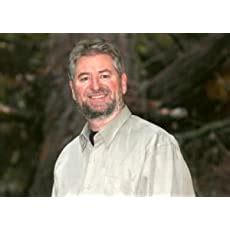A Quote by Stephanie Coontz
Averages are useful because many traits, behaviors, and outcomes are distributed in a bell-shaped curve, with most results clustered around the middle and a much smaller group of outliers at the high and low ends.
Related Quotes
The hope with Tipping Point was it would help the reader understand that real change was possible. With Blink, I wanted to get people to take the enormous power of their intuition seriously. My wish with Outliers is that it makes us understand how much of a group project success is. When outliers become outliers it is not just because of their own efforts. It's because of the contributions of lots of different people and lots of different circumstances.
The Bell curve is a fact of life. The blacks on average score 85 per cent on IQ and it is accurate, nothing to do with culture. The whites score on average 100. Asians score more. The Bell curve authors put it at least 10 points higher. These are realities that, if you do not accept, will lead to frustration because you will be spending money on wrong assumptions and the results cannot follow.
There are people at the extremes who aren't able to do anything musically, and then others sort of fall in the middle. And the same thing with math, and the same thing with art. You'll find people who are geniuses, or prodigies at the far end of the bell shaped curve, and I think you will find some of the acquired savants in that category who happened to have been endowed with that kind of talent, which explains why not everyone becomes an acquired savant.
More often than not, the most effective leaders have been shaped by teaching successfully in high needs classrooms. Because of their experience, they know that it is possible for low-income children to achieve on an absolute scale and understand what we need to do to allow them to fulfill their potential.
The aims of these three groups are entirely irreconcilable. The aim of the High is to remain where they are. The aim of the Middle is to change places with the High. The aim of the Low, when they have an aim-for it is an abiding characteristic of the Low that they are too much crushed by drudgery to be more than intermittently conscious of anything outside their daily lives -is to abolish all distinctions and create a society in which all men shall be equal.
Freedom is messy. In free societies, people will fall through the cracks - drink too much, eat too much, buy unaffordable homes, fail to make prudent provision for health care, and much else. But the price of being relieved of all those tiresome choices by a benign paternal government is far too high. Big Government is the small option: it's the guarantee of smaller freedom, smaller homes, smaller cars, smaller opportunities, smaller lives.



































